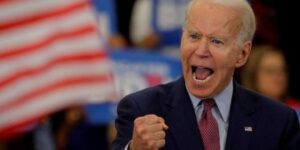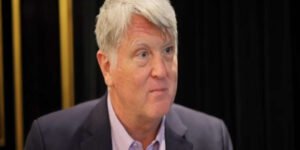Gary Bauer: Many of Donald Trump’s Positions Better Than Today’s ‘Conservatism’
Not long from now, the American people will go to the polls to elect the next president of the United States. We face tremendous challenges—a stagnant economy, racial tension and growing threats from radical Islam.
Voters increasingly feel the American dream is slipping away, that their children will be worse off, that the system is rigged against them and is not working for them. The vast majority of Americans—as many as two-thirds of us, according to the latest polls—know we are on the wrong track. We need a change.
In this election, Hillary Clinton represents the status quo—more scandals and more Barack Obama. I believe we have had enough of both.
But more importantly, I believe this election may be the last chance we have to stop Obama’s fundamental transformation of America, and restore our nation and the values we cherish.
In the choice between Hillary Clinton and Donald Trump, some Republicans say they may stay home or vote for third party candidates. Some say Trump really is not conservative. But I believe Donald Trump is, on a number of issues, better than what passes for conservatism today.
For example:
- Trump has directly confronted the smothering, debate-ending left-wing dogma, euphemistically called “political correctness.”
- He has said he supports a litmus test on judges. His Supreme Court appointments will be pro-life.
- He has made corruption in Washington, D.C. a major theme of his campaign.
- He rejects nation building in the Middle East—a utopian, not a conservative, adventure that ignores Islam’s incompatibility with the basic tenets of freedom, including religious liberty and the equality of women.
- He exhibits Ronald Reagan’s caution on the use of military force, coupled with Reagan’s firm belief that when we do use force, we fight to win.
- Trump is confronting the putrid globalism that believes secure borders are passe and that all cultures are equal. He believes in American exceptionalism and the rule of law.
- Lastly, but certainly not least, Donald Trump’s selection of Indiana Governor Mike Pence to be his running mate was a grand slam home run. Mike Pence is a Ronald Reagan conservative who describes himself as “Christian, a conservative and a Republican—and in that order!”
I will not guarantee that conservatives will applaud everything Donald Trump does. But I can guarantee that Hillary Clinton will do nothing conservatives might applaud.
Conservative voters who doubt Donald Trump can trust Hillary Clinton to do everything she promises, such as:
- Impose a massive amnesty far beyond what Obama has done.
- Appoint pro-abortion, left-wing judicial activists who will gut the First Amendment and effectively repeal the Second Amendment.
- Put a lot of coal miners and other energy industry employees out of work.
- Increase the flow of refugees from Muslim nations by 500%.
- Raise taxes by $100 billion a year.
- Continue Obama’s foreign policy of appeasement, allowing nations like China, Iran and Russia to expand their influence while America retreats.
- Empower extremists on the left, such as the radicals in the Black Lives Matter movement and the anti-Israel fanatics on America’s college campuses.
What on that agenda appeals to any conservative?
This November, voters who cherish faith, family and freedom have a very clear choice: Voting for Donald Trump gives us a chance to restore America. Not voting or dividing the conservative vote by supporting a third party candidate only empowers the left, and likely means the end of conservatism in America.
Gary Bauer is the founder of the Campaign for Working Families, a political action committee dedicated to electing to federal and state offices “pro-family, pro-life and pro-free enterprise” candidates. He is also the president of American Values, a non-profit organization “committed to defending life, traditional marriage, and equipping our children with” conservative values. An alumni of the Reagan administration he served as President Reagan’s Deputy Under Secretary for Planning and Budget in the United States Department of Education, from 1982 to 1987, and as an adviser on domestic policy from 1987 to 1988. Author’s titles and affiliations are for identification purposes only.







































